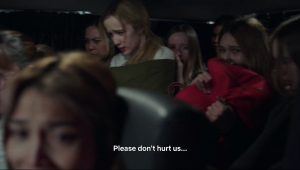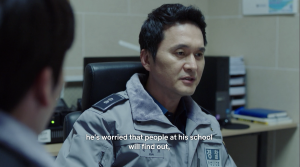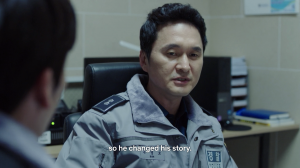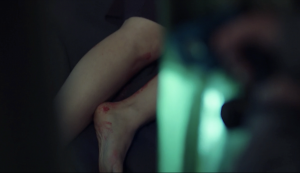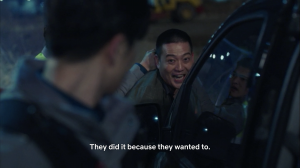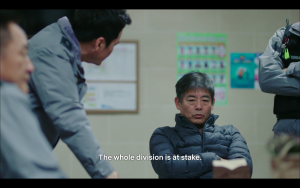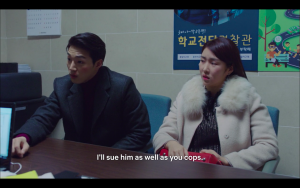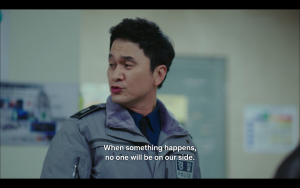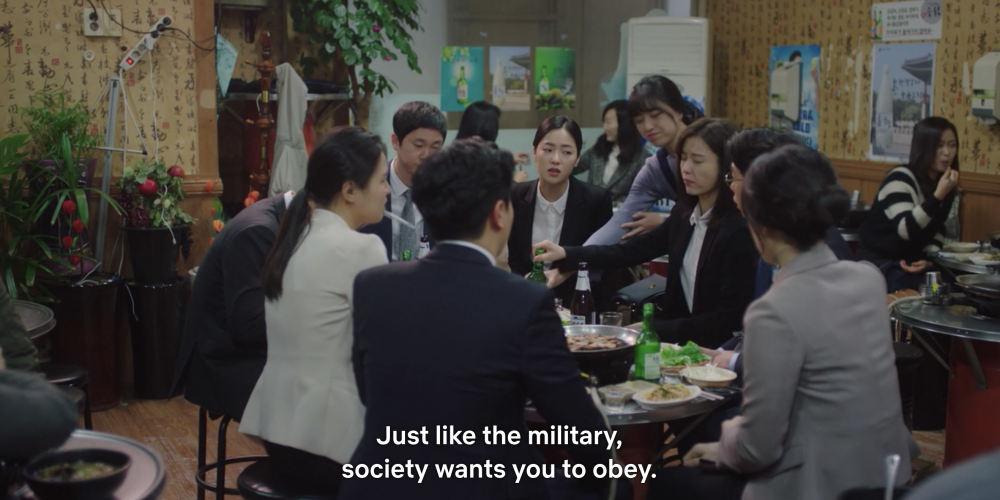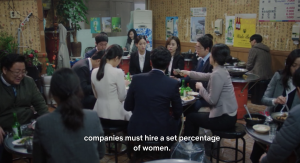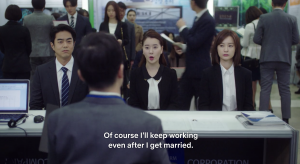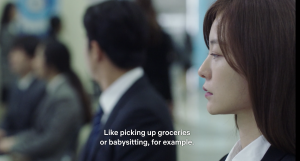Synopsis
Episode 11 starts off with a very refreshing and a “serves you right” moment when the underage teens get justified for their crimes. However, as the story unfolds, we, as the viewers, get to realize that the actions of Man-Yeong were a reflection of his past and the absence of loving parents. While Man-Yeong’s case has ended, we get introduced to another new problem of a serial rapist. Ironically, the victims refuse for a proper investigation due to the fear of being targeted again but in episode 12, we get to see the past of Jeong-O which ultimately allowed her to convince the victim to continue for a proper investigation.
Discussion
Like all societies, victimization of women are prevalent around the world. As mentioned in class, victimization of women gave thrust to the Korean feminist movement and it did not take long for the #MeToo movement to gain momentum. 2018 was perhaps one of the most significant year where feminist activity experienced its pinnacle and gained widespread media coverage in Korea. However, it is always the case that when these movements rise to battle injustice inequality, there are those who take advantage of the situation.
During May of 2018, the case of Youtuber Yang Ye Won has gained an incredible amount of support and coverage for her courage to speak up and tell the public about her victimization. However, it was not so long when the case was backlashed by a series of evidence that went against her claims. While she claims that she was sexually abused by the photo studio that she was freelancing for, evidence of exchanged text messages showed that it was Yang that wanted more session and that she was the one who dictated when to work and had the choice of working or not. According to an article from Metro, she claimed that she was a victim of a sex crime and was told that it would be a normal photo-shoot (Hicap, 2018). While her YouTube video explaining the situation stated that there was a total of five sessions, evidenced showed that even after five sessions, she was the one to schedule more sessions, totaling 13. The case is still ongoing and yet to unfold as the most recent trial was on the 24th.
Although we do not know whether or not she took advantage of the feminist movement to gain support or fame, current evidence showed that her side of the story did not match what she claimed. This sort of ambiguous case significantly hinders the movement towards equality, especially in the Korean culture. Korean culture is extremely divided when it comes to gender roles. The cultural norms and duties of a women and men are strictly divided and guided by traditional principles. In the 21st century, the Korean society has evolved to adapt to a women oriented or inclusive workforce since the significance of the export based economy flourished during the Park Chung Hee era, where women played a major role in the labour market. However, feminist movements in Korea are different than those of the Western culture and by different, I mean privilege. Korea is one of the few countries that still have mandatory military service, however, the irony is that only men have to serve in the military for two years while the same regulation does not apply to its counterpart. In addition, there are multiple spaces, even a whole floor dedicated to a “women’s only” parking . When the two genders want equality, these gender concepts that points to the “only” privilege or disadvantage must disappear and in my opinion, that day will not be in the near future.
Questions:
- Do you think that some accommodations and regulations that are allowed only for certain gender deteriorates the sense of equality?
- In North America, there is an active men’s rights group called the Men’s Rights Association or the MRA. However, their protests and rallies are always belittled by both men and women. Why do you think this is the case?
(Little side note for question 2, MRA fights for men’s equality, focused on equal treatment. One of their issues address the difference in crime. There are cases where both the man and the woman committed the same crime but the man was given a higher sentence compared to the woman. In addition, Erin Pizzey, the founder of the first women’s domestic violence shelter in the world and current men’s rights activist, believes that domestic violence had nothing to do with what power men had or are assumed to have over women. Pizzey stated from an interview with A Voice for Men that both men and women in interpersonal relationships can be violent. While there were approximately 2000 women’s help center for domestic violence in the United States in 2016, there was only one that dedicated its service for men since most women’s center refused to help men)
Bibliography
Hicap, J. (2018, May 28). YouTube star claiming she was sexually assaulted gets online abuse. Retrieved from https://metro.co.uk/2018/05/28/youtube-star-claiming-she-was-sexually-assaulted-and-forced-to-do-nude-photoshoots-gets-online-abuse-over-conflicting-statements-7582789/


